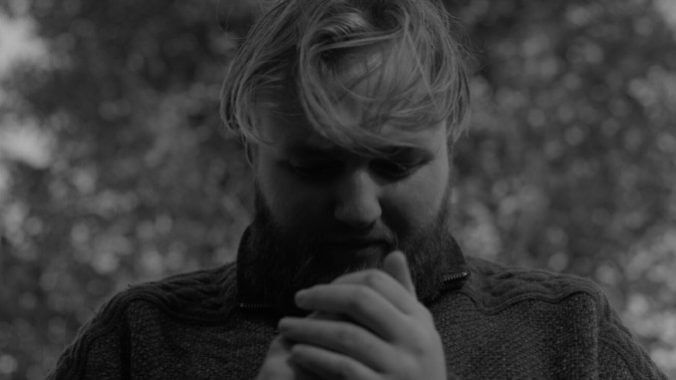The Roots of A Guide to Becoming an Elm Tree Are Human Tragedy

Whatever the culture, whichever the hemisphere, folk horror tends to teach viewers the same message: Respect the old world, or the old world will bite you on the ass. Irish folk horror distinguishes itself especially by measuring the tragic toll levied on the poor schmucks who shrug off their ancient and rich cultural heritage, then regret their neglect when the heritage comes calling. The “horror” part is self-evident, baked into visitations from goblins and faeries and banshees and other bogeyman, so the “abiding woe” receives special emphasis. There’s little more Irish than a story that concludes in its protagonist’s seismic ruin; on the Emerald Isle, misery loves company.
In Adam and Skye Mann’s A Guide to Becoming an Elm Tree, this is especially true: The film’s lead, Padraig (James Healy-Meaney), isn’t much for carpentry or woodworking, and yet he seeks out a carpenter, John (Gerry Wade), and pays him handsomely for the privilege of his tutelage and muted bemusement. Padraig has no skill. John has little patience. But John takes Padraig on, instructing him in the ways of properly harvesting and treating elm wood, and slowly, bit by bit, turning it into a coffin, for reasons only Padraig can appreciate—not that he speaks much about his past or present anyway. He’s a mollusk. But he’s a mollusk with a purpose, and enough guilt, shame and contrasting insouciance to fill a grave, and he sets about realizing his purpose with stoic determination. All the while, John watches, and worries.
Concern, not stark bedwetting terror, is the film’s soul, though Padraig’s taciturn refusal to expand on the circumstances leading up to his arrival at John’s door throws the Manns’ narrative into anxious territory. Compared to its peers in contemporary Irish folk horror—The Hallow, Unwelcome, The Hole in the Ground, Mandrake, Wake Wood—A Guide to Becoming an Elm Tree reads as horror adjacent; there are no monsters to speak of, a scant few moments of choking fear, and nary a drop of blood spilled in its 75 minutes. In their stead is the sense of overwhelming loss. Padraig’s grief is so absolute that it becomes the film’s atmosphere, no matter the Manns’ decision to withhold the details of his wife Aoibheann’s (Jordon-Dion Scanlon) passing. It is implied that Padraig bears responsibility for her fate, but how much, to what degree, is left unspoken. All that exists of her is the unbearable despair Padraig exhales with every breath.
-

-

-

-

-

-

-

-

-

-

-

-

-

-

-

-

-

-

-

-

-

-

-

-

-

-

-

-

-

-

-

-

-

-

-

-

-

-

-

-








































